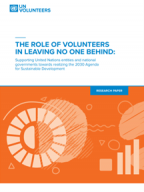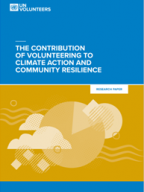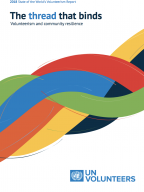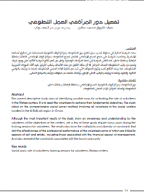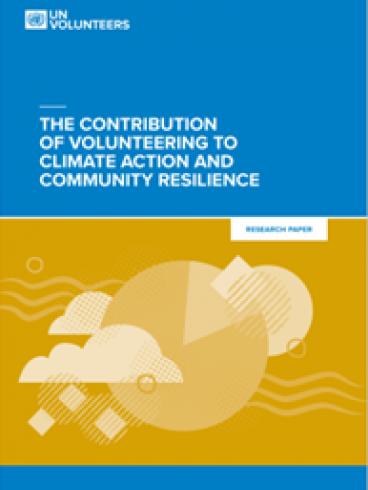
Report
The contribution of volunteering to climate action and community resilience
Climate and Volunteering
Download
Fast read
This research paper by the United Nations Volunteers (UNV) programme provides evidence of how volunteers across the world are engaging in actions that help their communities adapt to – and build resilience against – the impacts of climate change. It looks at the different forms and scales of volunteering, with a focus on local volunteering.
Synthesis
- When prioritized in planning, volunteer mechanisms can be a powerful and effective means of implementation. Yet there is limited knowledge and evidence of how volunteering can be embedded into strategies, policies and plans to mitigate the vulnerabilities caused by climate change, including disaster risk reduction.
- This paper, drawing primarily on secondary data that is complemented by primary data collected through interviews with stakeholders, provides evidence of how volunteers across the world are engaging in actions that help their communities adapt to – and build resilience against – the impacts of climate change. It looks at the different forms and scales of volunteering, with a focus on local volunteering, and provides a guide for local volunteering efforts on climate action. It also aims to support policymakers in United Nations Member States, governments, international organizations and nongovernmental organizations (NGOs) to identify strengths and areas for improvement when assessing their own work on volunteer and climate action.
- Volunteerism comes in many forms and contributes in multiple ways to respond to climate change and build community resilience. This paper presents four key contributions of volunteers to climate action and community resilience: 1) knowledge and capacity-building; 2) disaster preparedness and response; 3) implementation of mitigation and adaptation measures; and 4) climate governance. Gender and youth appear as cross-cutting themes, recognizing the critical role of young people and women in climate action and the need for gender- and age-inclusive volunteerism to achieve climate justice.
- The research paper is divided into four parts: Following an introduction (section one), section two defines volunteering, provides an overview of the contributions of volunteerism to sustainable development and explores the synergies between volunteering and climate agendas. Section three describes the specific contributions of volunteers to climate action and community resilience, with case studies from India, Guatemala and Kenya. Section four concludes with key messages and recommendations to support ongoing efforts at different levels to integrate volunteers and volunteerism into the climate change plans of United Nations Member States and throughout the United Nations system.













